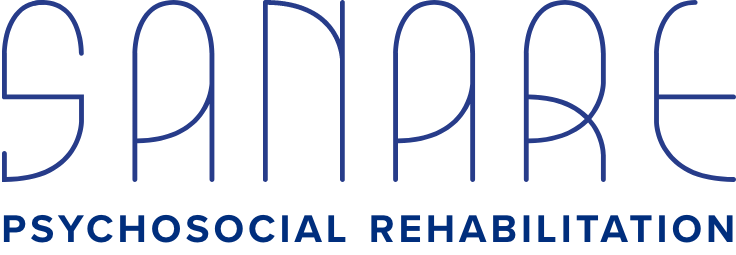Auditory Hallucinations & Schizophrenia
Schizophrenia is a serious mental health condition that may require lifelong support from mental health practitioners. Schizophrenia is a thought disorder and impacts the way folks interpret and understand the world around them. It is best treated with a combination of medication and therapeutic support.
Folks living with schizophrenia often have some combination of hallucinations, delusions, and disorganized thinking that cause impairment in life.
An auditory hallucination is the sensory perception of hearing a sound without an external stimulus. To the person experiencing them they are very real, however not experienced by those around them.
Auditory Hallucinations are a very common amongst folks living with schizophrenia. There are two main types of auditory hallucinations: verbal (hearing voices) and hearing sounds or noises.
Verbal Auditory Hallucinations:
Verbal Auditory Hallucinations may come from a single source, such as a television or may come from many different sources. People can believe that the source is something not otherwise known to speak such as a plush toy or an air vent.
Voices sometimes speak to a person and those impacted may or may not talk back to the voices.
Commonly the voices can narrate events that are taking place.
Voices vary between people who experience them and can be positive, negative or neutral in nature. Negative Auditory Hallucinations are often called, Persecutory. Meaning, they tell the person that they are bad, worthless, stupid, etc.
When voices are instructing people to complete tasks we call those Command Hallucinations. These can be particularly distressful as they may tell people to hurt themselves.
Hearing Sounds or Noises:
Auditory hallucinations can also involve hearing sounds that are not words or spoken by voices. They can be music, animal sounds, or other types of sound.
Sanare's co-founders Briana Severine and Ali Pierucci have years of experience working with folks living with schizophrenia, and our entire staff have a passion and commitment to working with these clients on symptom management, with the goal of improving their quality of life.
Because we work with folks in their homes and in the community, we can help them when they are experiencing delusions. For example, we help our client's navigate appointments related to medical and housing needs. We can reality test with a client right in the moment by sharing what we are experiencing and or giving them examples of evidence from our experience with them and their symptoms over time. We can also provide valuable psychoeducation to the client and their family/support system defining and identifying these symptoms. Understanding their delusions can help clients gain insight. Insight, our capacity to gain understanding can help folks manage delusions if even just to understand that there is difference between their experience of the world and those around them. Our staff take time and care to build rapport with clients and employ interventions around delusions respectfully and thoughtfully to work with the client where they are at. Some of our clients experiencing delusions may just need help getting to and from appointments, organizing their living space, or grocery shopping. Understanding and working with delusions compassionately helps us individualize our treatment
